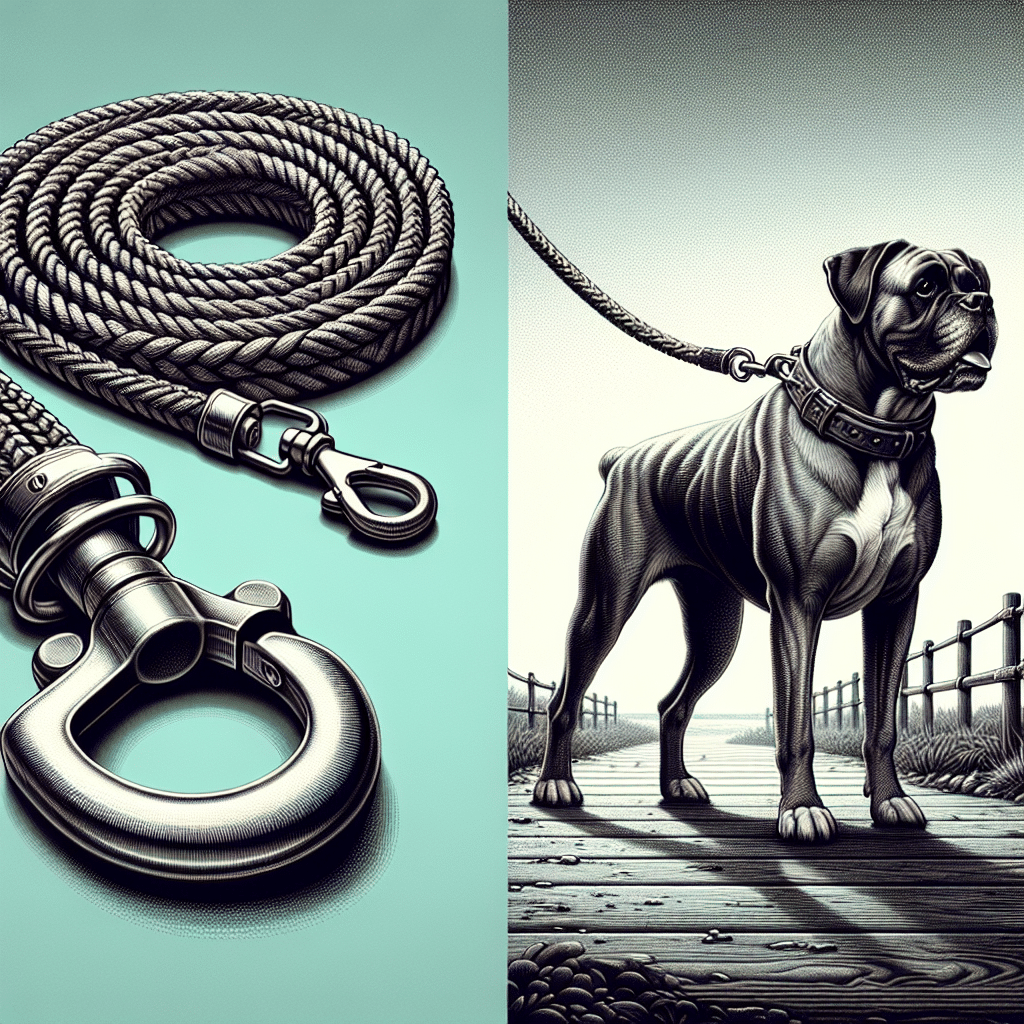Understanding the Needs of Heavy Pullers
Choosing the right leash for heavy pullers requires a deep understanding of their unique behavior and needs. Heavy pullers, such as certain breeds like Bull Mastiffs, Siberian Huskies, and Rottweilers, have a strong, forceful pulling tendency due to their size, strength, and exuberance. Selecting a leash that can withstand this force while ensuring safety and comfort is crucial.
Factors to Consider When Selecting a Leash
-
Material Strength
The material of the leash plays a critical role in durability. Look for leashes made from high-quality nylon or cotton webbing, which offer high tensile strength. Heavy-duty leashes are typically reinforced with additional stitching or multi-layered materials to prevent tearing under stress. -
Width of the Leash
Leash width affects both durability and comfort. A wider leash (typically 1.5 inches or more) distributes pressure over a larger area, making it less likely to cause discomfort or injury to both the dog and the handler. A wider leash is also typically more durable, as it can withstand the pulling force much better than a narrower one. -
Leash Length
The length of a leash can impact control and training. For heavy pullers, a shorter leash (4-6 feet) provides better control, keeping the dog close while allowing corrective actions without excessive slack. Longer leashes (up to 30 feet) allow for freedom in open spaces but can be challenging to manage with a strong puller. -
Clip Mechanism
The clip that attaches the leash to the collar or harness must be robust. Look for high-quality, heavy-duty clips made from stainless steel or aluminum. Snap hooks should have a locking mechanism to prevent accidental detachment during vigorous pulls. -
Type of Leash
There are various types of leashes to consider:- Standard Leashes: Typically 4 to 6 feet long, these leashes provide direct control, essential for heavy pullers.
- Martingale Leashes: These leashes tighten slightly when pulled, providing a correction without harm.
- Traffic Leashes: Shorter leashes with a handle near the collar allow for quick control in crowded areas.
- Retractable Leashes: While popular, these are not recommended for heavy pullers due to the risk of the mechanism failing under intense pulling.
Exploring Features for Extra Durability
-
Reinforced Stitching
Leashes with reinforced stitching at stress points enhance durability. Inspect the stitching for any signs of fraying or weakness, as these can indicate a potential failure point. -
Water and Weather Resistance
If you live in a region with wet conditions, consider leashes that are water-resistant or treated to withstand various weather conditions. This prevents degradation of the material over time. -
Padding
A leash with padded handles can significantly enhance comfort for the handler, especially during extended walks. Choose padded options made from soft but durable materials to reduce strain while handling heavy pullers. -
Color and Visibility
While not a direct factor in durability, opting for brightly colored leashes can enhance visibility, ensuring safety during night walks. Look for reflective materials that help you be seen by passersby and oncoming traffic.
Testing the Leash Strength
Before committing, it’s wise to test potential leashes:
- Weight Test: Physically pull on the leash to gauge its strength. A leash that feels flimsy or stretches significantly under pressure may not be durable.
- Field Test: Take the leash for a controlled test walk with your dog to assess comfort, functionality, and durability during actual use.
Maintenance for Longevity
Selecting a durable leash is only part of the equation; regular maintenance enhances longevity:
- Routine Cleaning: Clean your leash regularly to avoid dirt accumulation,which can weaken fibers over time.
- Regular Inspections: Check the leash for fraying, breaks, or worn-out clips. Address any issues immediately before they lead to failures.
Recommendations for Durable Leashes
-
PetSafe Nylon Dog Leash
Highly durable with reinforced stitching and a sturdy clip, this leash is excellent for those dealing with heavy pullers. Its padded handle offers comfort, even during tight pulls. -
Mighty Paw Heavy Duty Leash
Made of strong nylon, this leash features a light reflective strip for added safety. Its robust construction can endure the strength of heavy pullers. -
TUG Patented 360° Anti-Tangle Leash
While retractable leashes are typically not recommended for heavy pullers, this innovative design includes a heavy-duty construction and a secure locking feature, beneficial for moderate control. -
Blue-9 Balance Leash
This leash boasts a versatile design that allows for various configurations, including short and long options. Its strength ensures it can handle the force of heavy pullers.
Final Thoughts on Selection
Choosing a leash for heavy pullers does not need to be overwhelming. By considering the material, strength, features, and ensuring routine maintenance, you can find a durable leash that enhances your walking experience. Remember to engage in regular tests and inspections to maintain both safety and longevity. The right leash can make a significant difference in your walks, transforming them from a challenge into a pleasure.
